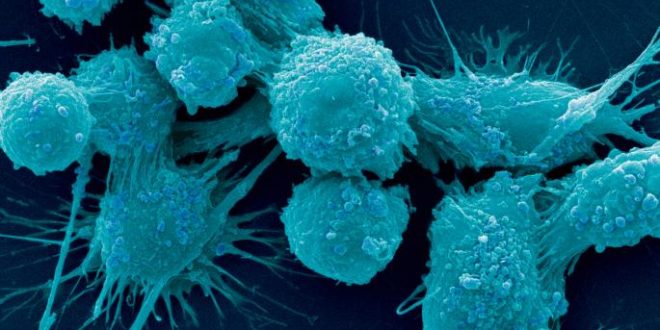Researchers have discovered the genetic fingerprint that switches curable, localised prostate cancer into the aggressive form that spreads to lymph nodes or tissue in other parts of the body.
Canadian and Australian prostate cancer researchers have discovered a key piece in the genetic puzzle of why men born with a BRCA2 mutation may develop aggressive localized cancers that resist treatment and become lethal for up to 50 per cent of patients within five years.
The findings, published online today in Nature Communications, show that BRCA2-associated tumours are already pre-set to be aggressive, even before treatment. This is because the genes normally involved in regulating cell growth and division are abnormal in the BRCA2-associated cancers right from the get-go and therefore are resistant to therapy right up front, says co-principal investigator Dr. Robert Bristow, clinician-scientist at Princess Margaret Cancer Centre, University Health Network.
In the Nature Communications study, Dr. Bristow and co-principal investigators Dr. Paul Boutros at the Ontario Institute for Cancer Research, and Prof. Gail Risbridger at Monash University, Melbourne, Australia, compared 15 patients with BRCA2-inherited prostate cancer with 500 prostate cancer patients from the general population with non-inherited (“sporadic”) prostate cancer. In the related study of 500 tumours from Canadian men with non-inherited prostate cancer also published today, in Nature, Drs. Bristow and Boutros analyses led to the discovery of a new genetic fingerprint that identifies when curable disease may turn aggressive.
Although BRCA2-inherited disease affects less than 2 per cent of men with prostate cancer, Dr. Bristow says the research sets the stage to rethink ways to use other drugs differently to personalize treatment for more men.
“The pathways that we discovered to be abnormal in the localized BRCA2-associated cancers are usually only found in general population cancers when they become resistant to hormone therapy and spread through the body,” says Dr. Bristow. “These include pathways related to the repair of DNA damage, cell division, the receptor for the male hormone testosterone and cell-to-cell signaling.
“We now know need to explore the use of novel therapies to offset the BRCA2-associated aggressiveness earlier on in the treatment of these men and improve survival in an otherwise lethal tumour,” he says. “This might include different types of chemotherapy or the use of molecular-targeted drugs that specifically target the changes associated with BRCA2 mutation.”
“This is an exciting time in prostate cancer research in which the genetics of individual men and their cancers are beginning to dictate precise and customized treatment,” he adds. “It is an example of the power of international collaboration and team science to crack the genetic code even in the rarest of tumours.”
Agencies/Canadajournal

 Canada Journal – News of the World Articles and videos to bring you the biggest Canadian news stories from across the country every day
Canada Journal – News of the World Articles and videos to bring you the biggest Canadian news stories from across the country every day

